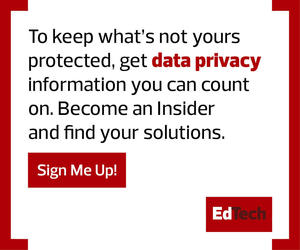Student Voices Help Guide Privacy Decision-Making
Student voices are integral to shaping our privacy practices at UC San Diego. We involve student leadership in all committees and governance structures that the privacy office leads. Students provide a valuable perspective to data privacy conversations that the university might miss.
As administrators, sometimes we’re removed from the student lifestyle and forget what it’s like. It is helpful to hear input from those who are most impacted by the decisions we’re making. Our student leaders aren’t shy about voicing their concerns, and soon enough, a dialogue develops between the students and university administrators.
A recent example shows how student voices helped our campus meet its goals during the height of the COVID-19 pandemic. Student input was instrumental in the success of a new daily wellness program.
Every day, students were asked to log in and complete a wellness questionnaire, which collects sensitive personal information. Our students told us they were concerned with data use and access and ease of navigation. We listened to our students by improving ease of use and publishing an easy-to-understand privacy notice.
Having students involved in this process helped us realize that if we’re going to make them do something every day, we should make it as easy as possible for them to comply, while also giving them information about how we will use their personal data. Because of their participation, compliance with the requirement increased and we had a safer campus.
FIND OUT: What college students really think of data privacy.
Embedding Privacy into the Educational Experience
At UC San Diego, we talk to our students about the importance of privacy for healthy democracies, social movements, and freedom of speech and research. After all, data privacy is a civil liberties and civil rights issue.
We discuss the impact of the current data collection regime on our future and make clear that this generation of students holds the key to ensuring our data practices are equitable, beneficial and sustainable. We offer a free monthly Privacy 101 Workshop that dissects these issues in greater detail.
We also encourage embedding privacy lessons into the classroom as an effective way to teach students about their rights and responsibilities.
The University of California has also provided language for instructors to include in their syllabi so students can understand how their privacy is impacted in the classroom. Our privacy office staffers also guest lecture for several courses.
It’s important for our privacy program at UC San Diego to have an ongoing dialogue with students, educate them on the impact of current data practices on society and involve them in our governance structure. We have been able to better serve the university’s education and service missions by including students in every part of our program.










